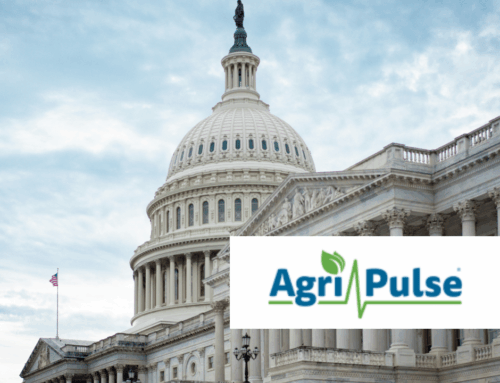With the ability of policymakers to work together under intense scrutiny, several members of Congress are finding common ground around the need to address the federal Renewable Fuel Standard (RFS), an inflexible policy that has failed to meet its stated goals while picking winners and losers and causing numerous unintended consequences on the food industry, environment, consumers, and taxpayers.
As a growing crowd of policymakers recognize this opportunity to take meaningful steps toward mitigating the wide-reaching consequences of the RFS — the policy requiring increasing levels of biofuels to be blended into gasoline — it’s clear that the corn ethanol lobby fears losing its 15 billion gallon government mandate that has propped up the industry since 2005.
Former Pennsylvania Gov. Mark Schweiker (R), for example, recently stated in this blog that “the RFS has driven a 19 percent reduction in American dependence on oil from unstable regions of the globe; while also providing alternatives at the pump that reduce GHG emissions by 20 percent.” Yet, countless experts — including the government’s own Energy Information Agency (EIA) — tie America’s lowering dependency to increased domestic energy production, better fuel economy, and Americans driving less due to the recent recession.
What’s more, the corn ethanol that is forcing its way into the marketplace is likely increasing greenhouse gas emissions, according to the National Academy of Sciences. In fact, corn-based ethanol nearly doubles GHG emissions over 30 years and increases greenhouse gases for 167 years, according to researchers from Princeton University and Iowa State University. With the RFS accomplishing the exact opposite of what it was intended to do – decrease GHG emissions – can it really be advisable to let the “RFS run its course,” as Schweiker suggests?
Contrary to claims that the RFS “places no burden on the federal budget,” corn ethanol, the most widely produced biofuel in the U.S., has cost taxpayers tens of billions of dollars over the past 30 years.
While the ethanol tariff and $6 billion-per-year tax credit were forced into retirement at the end of 2011, various subsidies including those in the energy title of the farm bill, continue to raid taxpayers' pocketbooks. In addition, taxpayer dollars have been squandered on the promise of so-called advanced and cellulosic biofuels which, due to various economic and technological challenges, have failed to meet lofty production mandates set forth in the RFS; this gap has left room for corn-based biofuels to gain even more market share as production of cellulosic ethanol, for instance, has only amounted to one percent of its government mandate. The maze of historic subsidies for ethanol has allowed the federal government to distort energy and agriculture markets, pick winners and losers, contribute to expansion and overproduction of ethanol in the industry, and result in numerous unintended consequences that cause long-term taxpayer liabilities.
And “liabilities” is likely an understatement. The RFS requires refiners to blend increasing amounts of ethanol into gasoline each year despite the fact that our vehicles and national infrastructure are already using the maximum amount of ethanol that can safely be blended with gasoline. Higher levels of ethanol-blended gasoline like 15 percent ethanol (E15) are no panacea to reaching blending requirements as they can void warranties and damage engines, leaving owners on the hook for costly repair bills. Despite allowing its market entry, the Environmental Protection Agency (EPA) has deemed E15 unsuitable for use in heavy-duty vehicles, vehicles built before 2001, marine engines and small engines such as lawnmowers and chainsaws.
This incompatibility has spurred corn ethanol proponents to lobby for more taxpayer subsidies for new ethanol blender pumps, storage tanks, and pipelines to accommodate a fuel that is more corrosive than gasoline. While taxpayers already subsidize blender pumps and storage tanks through the U.S. Department of Agriculture’s Rural Energy for America Program (REAP), the corn ethanol lobby continues to seek additional subsidies for this mature industry.
If this wasn’t enough, corn ethanol is also draining consumers’ pockets. The prices of meat, poultry, eggs, dairy, wheat, and soybeans have increased as greater levels of corn ethanol production contributed to higher corn prices and greater land competition with other crops. The Congressional Budget Office (CBO) found in 2009 that one-fifth of the increase in corn prices between 2007 and 2008 could be attributed to increased corn ethanol production. Researchers from MIT and UC Davis have also revealed claims that ethanol-blended is cheaper than regular gasoline to be based on “implausible economic assumptions and spurious statistical correlations.” In fact, since ethanol contains one-third less energy than gasoline, and drivers receive less mileage per gallon with ethanol, consumers are forced to return to the pump more frequently and at greater cost.
It’s time taxpayers are no longer forced to suffer the consequences of the government supporting industries that should be standing on their own two feet, whether it is the biofuels, oil, gas, wind, natural gas, or other energy industries. By picking winners and losers, billions of dollars are being wasted at a time when Americans just cannot afford it. Since the RFS has failed to meet its stated goals, policymakers should repeal the mandate and eliminate other corn ethanol subsidies before more taxpayer dollars go down the drain.










